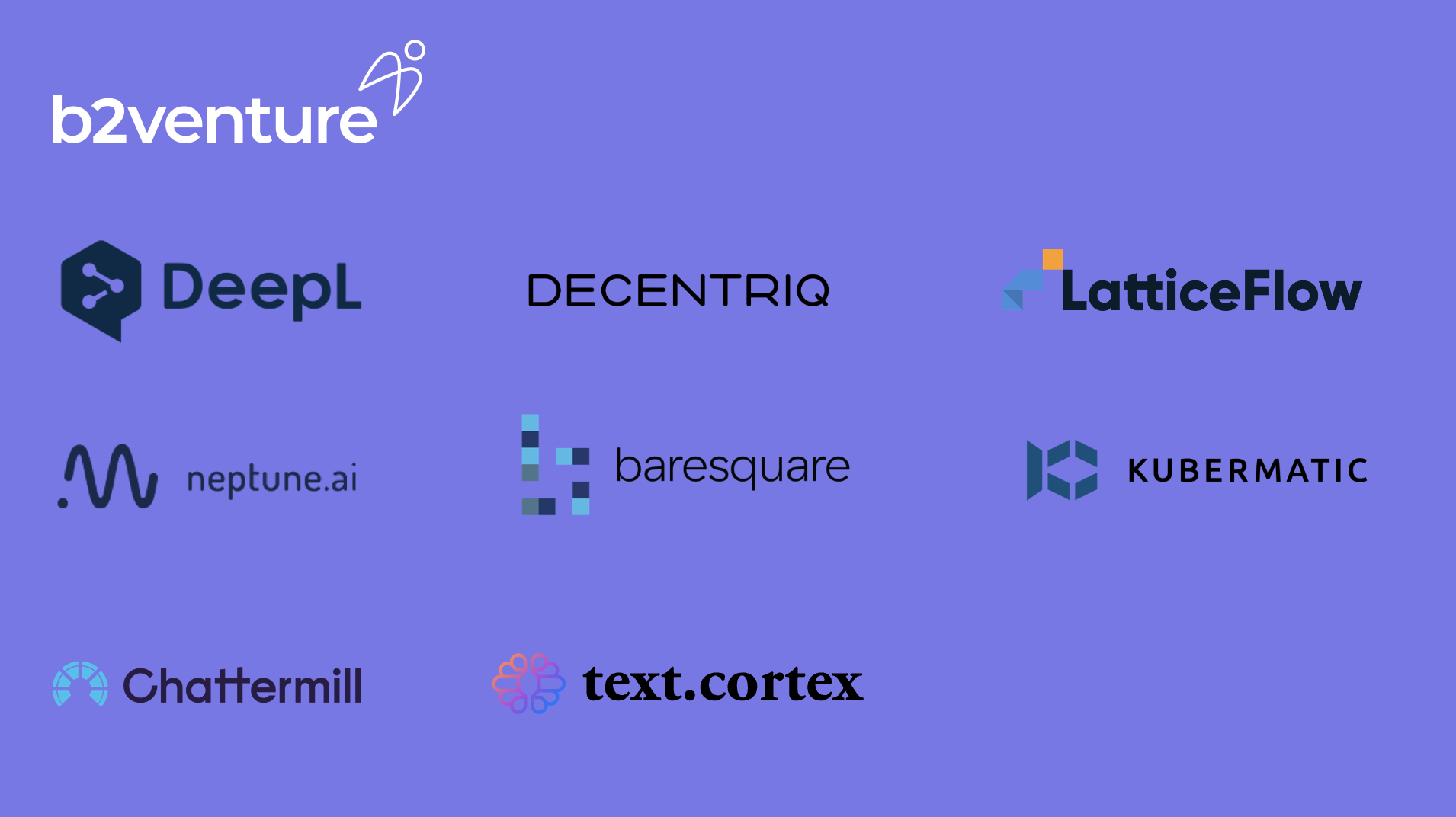Part 2: European Strategic Response and Economic Opportunity
Part 2: European Strategic Response and Economic Opportunity
This is Part 2 of our series on Understanding the Tariff War and Navigating Growth in a New World — read Part 1 here
Guest: Christoph Denk
Investor, lecturer, advisor. Former Managing Director at EBRD
Christoph Denk brings deep expertise in economic policy, both in the EU and in emerging markets. Over twenty years, he held senior roles at the EBRD, the IMF and the German Ministry of Finance. He wrote his PhD thesis on “Managing Political Risks”, a topic as relevant as ever.

Christoph Denk, given the shifting geopolitical landscape and ongoing tariff tensions, how do you assess Europe’s opportunity to step up as a more self-reliant economic bloc?
The current conflicts on trade and security come after 15-years of weak real economic growth in Europe. The continent has become more and more dependent on energy, security and technology from elsewhere – a dangerous path of slow relative decline.
To visualise Europe’s predicament, consider the apologue of the boiling frog: If a frog is thrown into boiling water, it will jump out and survive. But if the frog is placed in lukewarm water and the temperature rises gradually, it will not perceive the danger and die. Over the last 15 years, the water temperature has been rising gradually for Europe (in many ways: security, competitiveness but also climate). The shocks of the last few months now mean a sudden jump in temperature. This is the opportunity for Europe to jump and take its destiny into its own hands.
What would it take to convert the EU’s internal market of 450 million people into a more cohesive economic power in light of fragmentation elsewhere?
The single market is the EU’s core strength – and we must build on it. To improve competitiveness and achieve scale we need to deepen the single market, particularly now as barriers between economic blocs are rising. This is critical in many policy areas and it’s worth looking at the recent reports by Mario Draghi, Enrico Letta as well as Bruegel. Let me highlight three key areas:
- Energy: Electricity prices in the EU are roughly 2-3 times as high as in the US. We are making fast progress in building renewable energy capacity, but we need to invest heavily into a resilient grid, including interconnectors between countries. This is not only a matter of money but also requires faster project preparation and implementation.
- Defence: The European Defence market is completely fragmented. While the US has one main battle tank, the EU has seven. The acute security challenges require us to produce military equipment at industrial scale – not in an artisanal way. The defence sector is also undergoing a rapid technological transformation, creating opportunities in new market segments for which the European “Mittelstand” may be extremely well equipped.
- Capital markets: As investors are increasingly questioning the institutional fundamentals of the US-Dollar, there is an opportunity for the Euro. To reap it will require much deeper capital markets, overcoming fragmentation and removing barriers between savings and productive investments. The Draghi report made a number of very sensible – also also achievable – proposals: Create a single securities market regulator, standardise supervisory practices, build a unified post-trade infrastructure for clearing and settlement, and align withholding tax regimes.
Europe faces significant fiscal strain—from energy transition costs to increased defence spending. How can policymakers balance these demands while maintaining fiscal credibility?
On rearmament, I would just note the extraordinary difference between traditional, decade-long, multi-billion Euro development and procurement processes and the agility with which Ukraine has developed its capabilities in drone-warfare. What can we learn from that?
More widely, I think it is essential to use the ingenuity and dynamism of the private sector in tackling the big challenges of our time – from energy transition to defence to infrastructure. Unleashing the power of the private sector will also require urgent action in (de-) regulation and effective governance. I have the impression that we are sometimes tying ourselves in knots and are losing the capacity to act and simply get stuff done. In Germany, I place great hopes in the “Initiative für einen handlungsfähigen Staat” (initiative for a capable state) by former Ministers Steinbrück and de Maizière.
How can these pressures be turned into strategic investments and growth of startups that actually fuel long-term productivity and competitiveness of the European economy?
The honest answer is that it’s complex. We have our success stories in Europe, but also much to learn from other countries, including the US. I suggest seeing the present moment, as difficult as it may seem, also as an opportunity. Let’s remember that a lot of innovation – and commercial success – emerged from the defence sector.
Should startups be afraid of becoming global champions or should they embark on the US market if they do have a strong USP?
It very much depends on the industry and the business model. Everyone who relies on global supply chains will have a very difficult time until we reach a new equilibrium on trade policies. In any event, there will be a lot of pressure to produce locally in the markets that you sell to. That will be true for the US, but also for other economic blocs.
There is also another big unknown: How far will the current trade conflict spill over into the service industry, incl. digital services, an area where the US is a net exporter? Watch that space!
And finally, the US administration made clear that issues of trade, financial policy, technology and security are very closely linked. There is unfortunately a lot of potential for the trade conflict to escalate into these areas. There are also opportunities for “grand bargains” – but they will require trust.
In summary, where do you see opportunities for start-ups and VCs at this moment in time?
Even though the global outlook has darkened significantly, there are always entrepreneurial opportunities. One big area is “strategic autonomy”, particularly countries’ desire to “de-risk” their supply chains. You can see this in the US with significant venture capital investment going into the nuclear fuel supply chain to reduce dependence on Russia. You can also see the discussions in Europe to reduce dependence on the US in satellite services.
The combination of this autonomy-drive with Germany’s forthcoming large investments in infrastructure and defence create a big opportunity space. Here, it’s important to look beyond traditional infrastructure and defence platforms and consider digital infrastructure as well as deep tech. In addition, anything that will help with project preparation and implementation will also be in high demand.
This is Part 2 of our series on Understanding the Tariff War and Navigating Growth in a New World — read Part 1 here
Guest: Christoph Denk
Investor, lecturer, advisor. Former Managing Director at EBRD
Christoph Denk brings deep expertise in economic policy, both in the EU and in emerging markets. Over twenty years, he held senior roles at the EBRD, the IMF and the German Ministry of Finance. He wrote his PhD thesis on “Managing Political Risks”, a topic as relevant as ever.

Christoph Denk, given the shifting geopolitical landscape and ongoing tariff tensions, how do you assess Europe’s opportunity to step up as a more self-reliant economic bloc?
The current conflicts on trade and security come after 15-years of weak real economic growth in Europe. The continent has become more and more dependent on energy, security and technology from elsewhere – a dangerous path of slow relative decline.
To visualise Europe’s predicament, consider the apologue of the boiling frog: If a frog is thrown into boiling water, it will jump out and survive. But if the frog is placed in lukewarm water and the temperature rises gradually, it will not perceive the danger and die. Over the last 15 years, the water temperature has been rising gradually for Europe (in many ways: security, competitiveness but also climate). The shocks of the last few months now mean a sudden jump in temperature. This is the opportunity for Europe to jump and take its destiny into its own hands.
What would it take to convert the EU’s internal market of 450 million people into a more cohesive economic power in light of fragmentation elsewhere?
The single market is the EU’s core strength – and we must build on it. To improve competitiveness and achieve scale we need to deepen the single market, particularly now as barriers between economic blocs are rising. This is critical in many policy areas and it’s worth looking at the recent reports by Mario Draghi, Enrico Letta as well as Bruegel. Let me highlight three key areas:
- Energy: Electricity prices in the EU are roughly 2-3 times as high as in the US. We are making fast progress in building renewable energy capacity, but we need to invest heavily into a resilient grid, including interconnectors between countries. This is not only a matter of money but also requires faster project preparation and implementation.
- Defence: The European Defence market is completely fragmented. While the US has one main battle tank, the EU has seven. The acute security challenges require us to produce military equipment at industrial scale – not in an artisanal way. The defence sector is also undergoing a rapid technological transformation, creating opportunities in new market segments for which the European “Mittelstand” may be extremely well equipped.
- Capital markets: As investors are increasingly questioning the institutional fundamentals of the US-Dollar, there is an opportunity for the Euro. To reap it will require much deeper capital markets, overcoming fragmentation and removing barriers between savings and productive investments. The Draghi report made a number of very sensible – also also achievable – proposals: Create a single securities market regulator, standardise supervisory practices, build a unified post-trade infrastructure for clearing and settlement, and align withholding tax regimes.
Europe faces significant fiscal strain—from energy transition costs to increased defence spending. How can policymakers balance these demands while maintaining fiscal credibility?
On rearmament, I would just note the extraordinary difference between traditional, decade-long, multi-billion Euro development and procurement processes and the agility with which Ukraine has developed its capabilities in drone-warfare. What can we learn from that?
More widely, I think it is essential to use the ingenuity and dynamism of the private sector in tackling the big challenges of our time – from energy transition to defence to infrastructure. Unleashing the power of the private sector will also require urgent action in (de-) regulation and effective governance. I have the impression that we are sometimes tying ourselves in knots and are losing the capacity to act and simply get stuff done. In Germany, I place great hopes in the “Initiative für einen handlungsfähigen Staat” (initiative for a capable state) by former Ministers Steinbrück and de Maizière.
How can these pressures be turned into strategic investments and growth of startups that actually fuel long-term productivity and competitiveness of the European economy?
The honest answer is that it’s complex. We have our success stories in Europe, but also much to learn from other countries, including the US. I suggest seeing the present moment, as difficult as it may seem, also as an opportunity. Let’s remember that a lot of innovation – and commercial success – emerged from the defence sector.
Should startups be afraid of becoming global champions or should they embark on the US market if they do have a strong USP?
It very much depends on the industry and the business model. Everyone who relies on global supply chains will have a very difficult time until we reach a new equilibrium on trade policies. In any event, there will be a lot of pressure to produce locally in the markets that you sell to. That will be true for the US, but also for other economic blocs.
There is also another big unknown: How far will the current trade conflict spill over into the service industry, incl. digital services, an area where the US is a net exporter? Watch that space!
And finally, the US administration made clear that issues of trade, financial policy, technology and security are very closely linked. There is unfortunately a lot of potential for the trade conflict to escalate into these areas. There are also opportunities for “grand bargains” – but they will require trust.
In summary, where do you see opportunities for start-ups and VCs at this moment in time?
Even though the global outlook has darkened significantly, there are always entrepreneurial opportunities. One big area is “strategic autonomy”, particularly countries’ desire to “de-risk” their supply chains. You can see this in the US with significant venture capital investment going into the nuclear fuel supply chain to reduce dependence on Russia. You can also see the discussions in Europe to reduce dependence on the US in satellite services.
The combination of this autonomy-drive with Germany’s forthcoming large investments in infrastructure and defence create a big opportunity space. Here, it’s important to look beyond traditional infrastructure and defence platforms and consider digital infrastructure as well as deep tech. In addition, anything that will help with project preparation and implementation will also be in high demand.

The Author

Florian Schweitzer
Founding Partner
Florian Schweitzer is a founding partner of b2venture and part of the firm’s b2venture Fund Team. He co-founded the firm in 2000 and has led the organization throughout its history to become a unique venture capital firm investing across Europe together with its angel investor community.
Team


-min.png)




.jpg)












.png)




.jpg)


.jpg)














































.jpg)





















